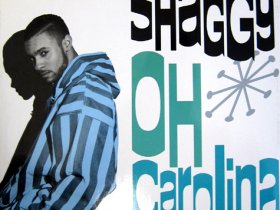In 1960, Cecil Campbell better known as Prince Buster (best known for his noted work in the history of Ska and Rocksteady music) approached the legendary Rastafarian percussionist Count Ossie (Oswald Williams) to cut a record, a record that musical historians are now calling the first-ever ska record. After much needed coaxing and convincing that the essence of the Niyabinghi-style drumming will stay true to its nature, Buster booked Count Ossie along with his drummers, bass drummer Ronnie Bop and pianist Owen Gray.
With the musicians in place, The Folkes Brothers - John, Mico and Junior Folkes – on vocals and Buster imitating horn riffs and doing handclaps, 'Oh Carolina' was born after just two takes.
According to Kevin O'Brien Chang and Wayne Chen's book, Reggae Routes: The Story of Jamaican Music:
"Early Jamaican recorded music was often just an attempt to duplicate American R and B songs. And the usual result was a third-rate copy on fourth-rate equipment of second-rate tunes sung in a quasi-American 'twang'. It's hardly an accident that not many pre-independence Jamaican tunes are played on the radio."
"But 'Oh Carolina', whether by design or accident, contained distinctive elements not heard in any previous R and B copy. Count Ossie's drum group had the most to do with it, but the song's fresh sound wasn't just due to the drumming. What was original was the way the drums played off the other instruments and the singers' voices, trailing just a bit and almost play call and answer. Combining the energy of R and B with the hypnotic repetition of Rastafarian drumming, the throbbing beat was eminently danceable but not frenetic. If one song can be singled out as signifying the birth of reggae, 'Oh Carolina' is it."
According to an interview that John Folkes did with reggae historian Roger Steffens, the song was the first song in the history of Jamaica to give the Rastafarian movement respectability. It was also completely unique and a cutting edge sound wise at that period:
"'Oh Carolina' is not ska; neither is it calypso or R and B or boogie woogie or mento or even Rock n' Roll. It is essentially an innovative heritage folk song. But it has echoes of some of the above. It was and still is a party song. It's a powerful thing, not written with any kind of formal tradition, but just powerful feral writing."
Reminisce on Shaggy's first hit single here
Hear The Folkes Brothers Nyabinghi-esque drumming and chanting on the original 'Oh Carolina'













 less
less
 more
more